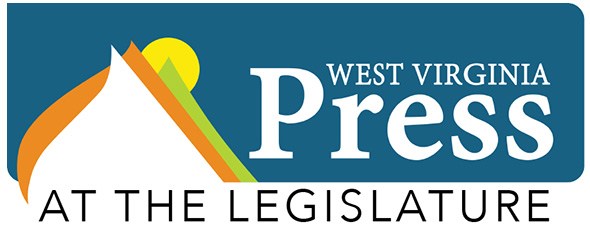By Autumn Shelton, WV Press Association
CHARLESTON, W.Va. – The Senate Health and Human Resources Committee moved along four bills on Tuesday, including one to continue tracking over-the-counter cold and flu medicine purchases, and advanced a committee resolution to determine the impact that “benefit cliffs” have on the direct care workforce.
The first bill advanced, HB 3077, originally introduced by lead sponsor Del. Heather Tully, R-Nicholas, would repeal a section of state code which sets an expiration date on use of the multi-state real time tracking system.
As explained during the meeting, this system is an electronic logging system used by pharmacies and members of law enforcement to track purchases of over-the-counter cold and flu medication used to make methamphetamine. The system is provided at no-cost to the state by the National Association of Drug Diversion Investigators, and will expire on June 30, 2023, if the bill is not adopted.
Following the committee’s passage, the bill will now go before the full Senate for further consideration.
Next, the committee advanced HB 3306, first introduced by Del. Amy Summers, R-Taylor.
This bill, along with a strike-and-insert amendment, would change the organizational structure of the WV DHHR’s Office of Drug Control Policy.
It would create a sober living facility and recovery residence task force consisting of the executive director of the state’s Prosecuting Attorneys Institute, the secretary of the Department of Homeland Security, the West Virginia Attorney General, the West Virginia Alliance for Recovery Residences, the state health officer, the commissioner for the Bureau of Behavioral Health and the state inspector general.
The task force would be responsible for reviewing laws as they relate to sober living homes and recovery residences and would be required to make yearly recommendations on these facilities to the Legislative Oversight Committee on Health and Human Resources Accountability.
The bill also states that the director of the Office of Drug Control Policy may be appointed by the governor, instead of the DHHR secretary, with Senate consent, and it provides that the director will report to the governor and work in cooperation with the officers of the Bureau for Public Health and the Bureau of Behavioral Health.
HB 3306 would also create a fund to pay for hospital services, and it would lessen the time to submit certain data, like fatal drug overdoses, to a centralized database from 72-hours to 24-hours after a provider responds to an incident.
This bill, as amended, will now go before the full Senate.
Next, the committee advanced HB 2016, also lead-sponsored by Del. Summers, which provides that a child placement agency or residential treatment facility may disclose confidential information to other agencies or facilities “when making referrals or providing services on behalf of the child.”
As explained by counsel, a strike-and-insert amendment “moves part of the bill to separate code sections for consistency and clarity.” It also includes a “provision that relates to providing copies of vital records to child placement agencies” and a provision that “refers to court hearing notices provided to those agencies.”
“The strike and insert also removes the reference to requiring access to hospital records in addition to making technical changes,” counsel stated.
There being no discussion, the bill will now go before the full Senate for possible approval.
The last bill advanced by the committee, HB 3191, requires state health facilities, including state mental health facilities, to be licensed as hospitals.
During the meeting, Sen. Patricia Rucker, R-Jefferson, asked for clarification, especially concerning state mental health facility licensure.
Counsel responded that should the bill pass, Mildred Mitchell-Bateman Hospital in Huntington and William R. Sharpe, Jr. Hospital in Weston would be required to be licensed as hospitals.
“That’s what I wanted to hear,” Sen. Rucker stated.
HB 3191 will now be considered by the full Senate.
Lastly, the committee advanced Originating Concurrent Resolution 2, which would direct the Bureau for Medical Services to initiate a study to “determine the impact of public benefit cliffs on direct care worker hours, recruitment and retention,” and “develop a mitigation strategy to alleviate the negative impacts of such benefit cliffs on direct care workers.”
The resolution states that the study must provide the costs and benefits of possible state policy solutions, including a Medicaid buy-in program, according to counsel.
The results of the study, which may be conducted by an institute of higher learning, must be provided to the legislature by July 1, 2023.
This resolution is now going before the full Senate for consideration.











